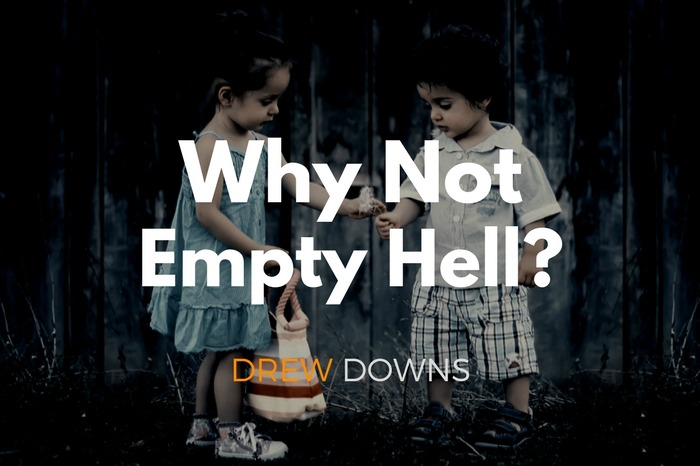23. As, for instance: why would the pastor not empty hell for the sake of love rather than the hollowest of incantations?
If love is what you’re about, then why not support love for the sake of love?
Isn’t that what God is after? Why not place the redemption at the center of the faith and the action? Why waste everyone’s time with a Jesus Prayer or the slippery slope of personal piety?
This thesis is my most closely modeled after any of Martin Luther’s. This one compares with #82. In that one, Luther challenges the pope on the fundamental grounds of the purpose of indulgences.
I haven’t spent much time on indulgences in these theses, so I suppose a few minutes can be spent for the sake of clarity.
What are Indulgences?
The question of salvation was then, as often now, about the question a person’s ultimate destination. Many of us are assured of heaven and many of hell. But there’s that grey area where one of “the saved” doesn’t deserve heaven or hell.
Riding to the rescue of the medieval church like a wild west sheriff is trusty ol’ Purgatory. God sticks the unworthy there until they can be purged of sin and become worthy again.
And like sin management today, they were trying to find ways to ensure they get a shorter stay to make up for some nasty stuff here. So they buy an indulgence.
I know, weird.
It gets even weirder when you consider that the money for the indulgences gets thrown in the bank to pay for cathedrals somewhere else. The whole system starts to sound nuts and you start thinking like Jesus and you get all “let’s overturn some tables!”
What’s the point?
Luther comes to see the indulgence like a visual metaphor for the problem with the church’s theology around redemption and reconciliation with God. If we’re repenting for sin, then God takes care of it. You don’t buy anything to deal with it! If it’s about God and getting in right relationship with God, then that’s all there is to it!
But the church has it screwed up and thinks it can sell redemption. And worse, pocket the money!
Hence, Luther’s outrage: if the pope really wants to redeem people, he’d do it for free.
For us, 500 years later, we’re seeing a different problem.
Nobody is selling redemption for a fee. But many are offering it by a claim of “taking Jesus into your heart” and by saying a prayer in front of the assembly.
Or we’re claiming that redemption comes in a personal relationship with God while we allow the same to continue to live in poverty. Then rain terror upon them in drone strikes or rot in overcrowded prisons.
Or we defend a theology of heaven and hell which condemns the souls of children for an angry God of ugly hate. Usually saying Jesus said something about the poor always being with us, so what else can we do?
Wouldn’t you empty Hell?
The question isn’t whether or not Luther was right about indulgences (he was). The question I have is what caused the church to think they were a good idea in the first place?
Luther’s response, like many well-reasoned arguments lost on bad causes ultimately spit shines a thread-bare theology. While resisting the urge his followers have to stretch the limits of what counts as decent, often turning God into a hideous rage monster, Luther also doesn’t challenge the more basic nature of the theology.
That God would punish people for eternity in an anti-heaven for junk they didn’t do.
We can’t go back and make Luther figure that out, but why do so few Catholic priests and Protestant pastors do the hard work of emptying Hell: both subjectively in the form of erasing the heavily-influenced theology and literally in the people who are living a hell on earth?
And I say this without the consumerist Protestant crutch of individual faith. Like the many stories we’re reading about white evangelicals trying to “save” through adoption, the argument goes like: well then big guy, what are you personally doing to save the world by yourself, huh?
Hell’s too big to empty with a couple of Good Samaritan’s and their big hearts. It takes big, systemic solutions.
All the words and incantations become hollow, when we’re off thinking our personal faith is the point while people are dying, burning, starving, drowning and our condemnations of faithful people lead to constant suffering.
It makes me think we aren’t saving anyone from Hell. We’re its gatekeepers and ticket-takers.
[This is Thesis #23 of my 31 Theses. To read them all, visit the 31 Theses introduction page.]

